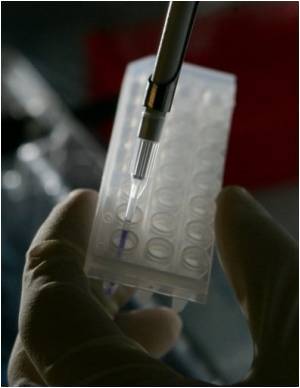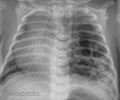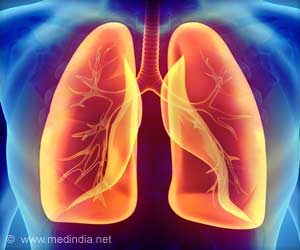A non-steroid based strategy for improving the lung''s innate immune defense and decreasing inflammation that can be a problem for patients with COPD has been developed

COPD is major public health problem for both the developed and the developing world. Characterized by chronic bronchitis and emphysema, COPD is the third leading cause of death in the US. COPD affects 24 million Americans and 210 million worldwide. Current treatments are largely symptomatic and supportive, but do not reverse the underlying biological defect in the lung.
For the study, the researchers examined macrophages-white blood cells that kill bacteria-isolated from lungs of COPD patients. The researchers also examined mice exposed to cigarette smoke, which mimicked the immunocompromised conditions in the lungs of COPD patients. The study showed that sulforaphane could increase expression of receptors that improve macrophage phagocytic function. However, further study is needed to determine if a sulforaphane-rich diet could be an effective treatment.
"Our findings suggest that macrophages from the lungs of patients with COPD have a defect in a process called phagocytosis involved in the uptake of bacteria. We discovered that activation of the Nrf2 pathway induced by sulforaphane restored the ability of lung macrophages to bind and take up bacteria," said Shyam Biswal, PhD, professor in the Bloomberg School''s Department of Environmental Health Sciences and senior author of the study. "The study provides proof of concept that activating the Nrf2 pathway can restore the ability of macrophage to phagocytose, or bind with bacteria, and clear it from the lungs of patients with COPD."
"This research may help explain the long-established link between diet and lung disease, and raises the potential for new approaches to treatment of this often devastating disease," said Robert Wise, MD, co-author of the study and professor of Medicine in the Johns Hopkins School of Medicine.
Authors of "Restoration of Bacterial Phagocytosis in Alveolar Macrophages from COPD Patients by Targeting Nrf2" include Christopher J. Harvey, Rajesh K. Thimmulappa, Xianoni Kong, and Robert Brown of the Johns Hopkins Bloomberg School of Public Health; Sanjay Sethi of the University of Buffalo; and Lonny Yarmus, and David Feller-Kopman of the Johns Hopkins School of Medicine.
Advertisement
Source-Newswise














